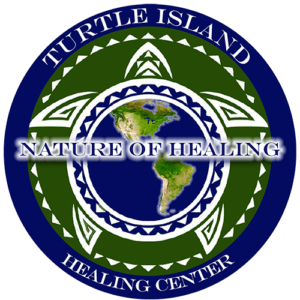The Rise of Ivermectin & Infertility
By Rosanne Lindsay, Traditional Naturopath
A phenomenon called infodemic was also configured, which describes the increase in flow of information about a subject—some accurate, others not—, which makes it difficult for the population to select reliable information. – Journal of Rev Panam Salud Publica, May 2021
People live in the Information Age, which can be a good thing and a bad thing.
What to trust? Where to go? Trust the message? Trust the messenger? Conflicts of interest?
Only you can discern the information coming at you from all angles.
Take the case of ivermectin, a well known drug for animals and humans, alike. It has a long history of use against intestinal worms and parasites.
Yet, despite not having proven efficacy against the new coronavirus-19, suddenly, ivermectin has been specifically recommended by doctors, health departments, and the federal government as part of an early treatment for Covid.
Why?
Do recommendations for ivermectin’s recent use for (Covid) disease control suggest that large groups of people have parasites?
During the start of the pandemic, few scientific studies evaluated the profile of people who used ivermectin as a means of prevention against ‘COVID-19.’ In fact, only one population-based study in Manaus, Brazil estimated use, noting that 38% of people self-medicated to prevent or treat COVID-19, and 31% of them used ivermectin.
The push for ivermectin by medical doctors during the pandemic led this drug to a sales peak that increased the revenue of laboratories, in some cases by 829%.
 According to one source, ivermectin is a drug approved by the NIH for the treatment of Covid-19. Alternatively, another source suggests the NIH did not approve ivermectin for Covid19. No other agency approves ivermectin for use with Covid. Is that to favor a more dangerous drug, Remdesimir?
According to one source, ivermectin is a drug approved by the NIH for the treatment of Covid-19. Alternatively, another source suggests the NIH did not approve ivermectin for Covid19. No other agency approves ivermectin for use with Covid. Is that to favor a more dangerous drug, Remdesimir?
According to an ongoing, double-blind, randomized, placebo-controlled platform JAMA study, ivermectin does not improve recovery time when compared with a placebo. [Note: study identifies conflicts of interest]. The FDA has not approved ivermectin for patients with Covid-19.
While some individuals contend that ivermectin helped them recover from ‘COVID symptoms,’ this is considered anecdotal evidence. Others claimed it provided no benefit in their recovery.
So why are some doctors and government officials so eager to see an untested drug applied to infectious disease? Does ivermectin have another purpose beyond its use as an anti-parasitic drug?
What about herbal alternatives?
A 2020 study in the Journal Front Pharmacol. states:
…several herbal medicines have safety margins superior to those of reference drugs and enough levels of evidence to start a clinical discussion about their potential use as adjuvants in the treatment of early/mild common flu in otherwise healthy adults within the context of COVID-19.
Ivermectin & Infertility
Ivermectin Facts:
- Ivermectin has an alias, Mactizan, distributed in poor countries for “tropical diseases.”
- Ivermectin is a medical drug known for its anti parasitic and antimalarial effects.
- Ivermectin is a known teratogen in mammals.
- Ivermectin treatment during pregnancy cannot be considered safe.
- Ivermectin is an anti-fertility drug.
Fertility reduction is a global effort by global organizations such as the WHO and UNICEF in poor countries. The easiest way to increase infertility is to introduce it as “global assistance” through drugs and vaccines. Between the large donations by the Gates Foundation and underwriters such as the World Bank, the drug ivermectin has become a household name.
The UN Population Agenda
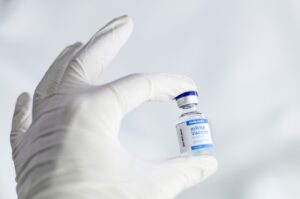 Anti-fertility vaccines studies:
Anti-fertility vaccines studies:
Over the past 18 years, the WHO Task Force on Vaccines for Fertility Regulation has been supporting basic and clinical research on the development of birth control vaccines directed against the gametes or the preimplantation embryo. J Human Reproduction, 1991
Most anti-fertility research is carried out in countries other than the United States. For instance, the National Institute of Immunology in New Delhi, India studies the biological antibody response of vaccines against follicle stimulating hormone (FSH), luteinizing hormone (LH), and gonadotropin releasing hormone (GnRH).
A study in male rats using diphtheria toxoid as the GnRH vaccine carrier reveals that antibody titers rise, testosterone levels fall, weight of testis decreases, and the prostate disappears. Int J Immunopharmacol, Apr. 1992
It might come as a surprise to some that a search of Pubmed shows that many vaccines are considered anti-fertility vaccines, also known as contraception vaccines and birth control vaccines. The Tetanus vaccine is used as an anti fertility treatment.
Further, DNA vaccines have been studied for infertility since 2002.
In these cases, HPV DNA was bound to the sperm surface and played a role in the infertility by affecting many sperm parameters. – Minerva Endocrinol (Torino), Mar 2022
SARS-CoV-2 orchitis and reduced male fertility may be long-term complications of COVID-19. – Med Sci Monit, Mar 2022
If not vaccines, then drugs?
Anti-fertility drug studies
 With over 20 years of use, there are a number of very concerning studies showing deleterious direct effects of Ivermectin:
With over 20 years of use, there are a number of very concerning studies showing deleterious direct effects of Ivermectin:
- Ivermectin-induced dose-dependent cell death, 2022
- Genotoxicity and carcinogenicity of ivermectin, 2019
- Ivermectin and liver toxicity, 2012
- Ivermectin inhibits human cytochrome P450 (liver) enzymes, Arch Toxicol, 2021
- Teratogenic and Cytogenetic effects of ivermectin, 2011
- Effects of Ivermectin on sperm count, motility, and function, 2011
- Effects on male infertility in rats, 2008
- Effect of ivermectin on make fertility, 2008
- Ivermectin Lymphocyte toxicity, 2008
- Effects on sperm motility and concentration in sheep, 2002
A 2008 study in the journal Environmental Toxicology and Pharmacology concluded:
Cytogenetic study revealed partial effect of ivermectin on meiosis. Meanwhile, the combined treatment of ivermectin and verapamil induced stronger effects on germ cells, increased frequency of meiotic structural chromosomal aberrations and increased X–Y chromosomal dissociation, raising the attention to the genetic quality of mature sperm.
Experimenting on Populations
The Task Force For Global Health claims that ivermectin prevents River Blindness from a nematode, in Africa. Merck Pharmaceutical has donated ivermectin to 58 countries under the name Mectizan, for 35 years, for tropical diseases. The World Bank underwrites the project, which is promoted by Forbes magazine.
However, studies show adverse health effects not publicly reported. The recipient, poorer countries are:
American Samoa, Angola, Benin, Brazil, Burkina, Faso, Burundi, Cambodia, Cameroon, Central African Republic, Chad, Colombia, Congo, Cook Islands, Côte d’Ivoire, Democratic Republic of the Congo, Ecuador, Egypt, Ethiopia, Fiji, Ghana, Guatemala, Guinea, Guyana, Haiti, India, Indonesia, Kenya, Kiribati, Liberia, Malawi, Malaysia, Mali, Marshall Islands, Mexico, Mozambique, Niger, Nigeria, Niue, Palau, Papua New Guinea, Senegal, Sierra Leone, South Sudan, Sri Lanka, Sudan, São Tomé and Príncipe, Tanzania, Thailand, Timor-Leste, Togo, Tuvalu, Uganda, Vanuatu, Venezuela, Vietnam, Wallis and Futuna & Yemen
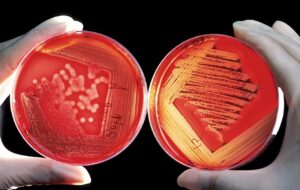 Meanwhile, in the U.S., according to a lawsuit supported by the American Civil Liberties Union, four Arkansas jail inmates suffered side effects including vision problems, diarrhea, and bloody stools after the physician at Washington County jail treated their covid with high doses of ivermectin without their knowledge. The case has prompted media comparisons to the infamous Tuskegee experiment.
Meanwhile, in the U.S., according to a lawsuit supported by the American Civil Liberties Union, four Arkansas jail inmates suffered side effects including vision problems, diarrhea, and bloody stools after the physician at Washington County jail treated their covid with high doses of ivermectin without their knowledge. The case has prompted media comparisons to the infamous Tuskegee experiment.
The inmates were told that their treatment consisted of vitamins, antibiotics, and steroids, according to their court filing. They received ivermectin doses as much as six times higher than that recommended for deworming, the drug’s normal use. They only learnt that they had received ivermectin six months later. – BMJ 2022
In another unethical experiment, the government of Mexico gave Ivermectin kits to people who tested positive for Covid-19 in 2021. The conclusion of their paper reported: “The study supports ivermectin-based interventions to assuage the effects of the COVID-19 pandemic on the health system.” However other research questioned the lack of evidence, saying that the study was unable to prove safety or effectiveness.
In a 2003 study titled, “An inadvertent exposure of ivermectin to pregnant women during mass drug administration...”, the Journal Tropical Medicine & International Health states, “these drugs are not to be taken while pregnant.” Why are women in large studies not warned?
Ivermectin now is used for multiple disease conditions, including a rising incidence of intractable cases of skin infestations (Scabies), as well as for cancer.
However, a 2019 study from the Journal of Environmental Toxicology and Pharmacology showed evidence of causing genetic instability and cancer in humans. Further, a 2001 study showed stomach cancer in rats.
Is ivermectin a wonder drug, able to eradicate parasites and malaria, eliminate river blindness, cure scabies, stop Coronavirus symptoms, and beat cancer without causing harm in the process?
Spreading Confusion
 What to do?
What to do?
The public health agencies provide conflicting opinions (see below). If there are contradictions and inconsistencies from the scientific narratives, question the advice, and follow your gut.
World Health Organization: “We recommend not to use ivermectin, except in the context of a clinical trial.”
US Centers for Disease Control and Prevention: “ivermectin has not been proven as a way to prevent or treat COVID-19.”
National Institutes of Health (A): 2022 – “There is insufficient evidence for the COVID-19 Treatment Guidelines Panel (the Panel) to recommend either for or against the use of ivermectin for the treatment of COVID-19.”National Institutes of Health (B) – July 2021, Ivermectin was listed as approved for the treatment of Covid-19.
European Medicines Agency: “use of ivermectin for prevention or treatment of COVID-19 cannot currently be recommended outside controlled clinical trials.”
US Food and Drug Administration: “The FDA has not authorized or approved ivermectin for use in preventing or treating COVID-19 in humans or animals. … Currently available data do not show ivermectin is effective against COVID-19.”
Ivermectin is not FDA-approved for Covid19. Nor is it officially approved by any U.S. agency. For that matter, many mRNA COVID vaccines are not FDA-approved, though they are “authorized” for use. Why authorize experimental-use vaccines and not experimental-use drugs, such as Ivermectin?
Again, the question must be asked; is the withdrawal of ivermectin as an approved drug done to favor more toxic FDA-approved drugs such as Remdesivir, with known liver and kidney toxicity?
Meanwhile, the book, “War on Ivermectin: The Medicine that Saved Millions and Could Have Ended the Pandemic” may create a false savior of ivermectin, when there are proven natural, herbal medicines that reverse respiratory symptoms and parasites, without harmful side effects.
Contraindications with Ivermectin
When taking the drug, ivermectin, always be careful when combining certain supplements that are heavily promoted by holistic media doctors. This applies to any medical drug:
- Careful to combine CBD, THC, or curcumin with ivermectin, since they all inhibit P-glycoprotein (P-gp), which can increase ivermectin toxicity.
- Research Berberine. Berberine inhibits both P-gp, and Cytochrome P450, CYP 3A4, and lowers the body’s defenses against cytotoxic and mutagenic effects of drugs like ivermectin.
- Consider not eating grapefruit when taking any pharma drug, which can enhance the absorption and toxicity of the drug. Science has known this since 1991. One ivermectin study prohibited participants from drinking grapefruit juice for 14 days prior to the study drug administration.
 In general, there is some evidence that natural substances as isolates, such as CBD, THC, Curcumin, and Berberine can all inhibit P-glycoprotein and liver enzymes, which increase ivermectin toxicity. For more details on the CBD-Pgp-ivermectin relationship, see Tim Truth’s explanation.
In general, there is some evidence that natural substances as isolates, such as CBD, THC, Curcumin, and Berberine can all inhibit P-glycoprotein and liver enzymes, which increase ivermectin toxicity. For more details on the CBD-Pgp-ivermectin relationship, see Tim Truth’s explanation.
Moral: Do your research when mixing synthetic drugs with isolates from the whole plants. Better to use the whole plant as food rather than expensive supplements. Further, always check the package insert since your doctor is not likely to do so.
Question Everything
All allopathic drugs are toxic. They come with direct adverse effects, both known and unknown. However, the poison is in the dose. As each person is unique, each person gets a choice.
Some people have turned to animal drugs when human drugs do not work, or when doctors withhold or withdraw alternative treatments. The anti parasitic animal drug, Fenbendazole, is a repurposed veterinary ant parasitic drug, being used to treat all types of human cancers. This shows that all cancers appear to be related to parasitic infections, even if not all parasitic infections meet the criteria for “cancer.”
The studies identified in this article, or any article must be scrutinized. Is ivermectin safe and effective at low doses for short periods?
What about going back to Nature and herbal medicine if the only options are experimental?
Do medical researchers give too high a dose, by design, to elicit a safe response, thereby ensuring a non-FDA approval?
Are governments overmedicating whole populations for fertility control?
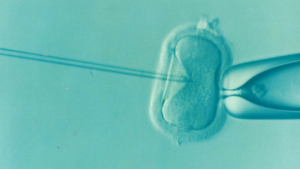
If couples cannot perceive that cytotoxicity and infertility are direct effects of current standard vaccine and drug therapies, will they be able to conceive children?
Will couples be forced to go through the revolving door of medical specialists to undergo expensive fertility treatments, with no guarantees and more drug-induced adverse effects?
Could UN Population mean Depopulation?
Ignorance is no excuse in the Age of Information. Always discern and do your own research!
Copyright © 2023 Nature of Healing | All Rights Reserved |


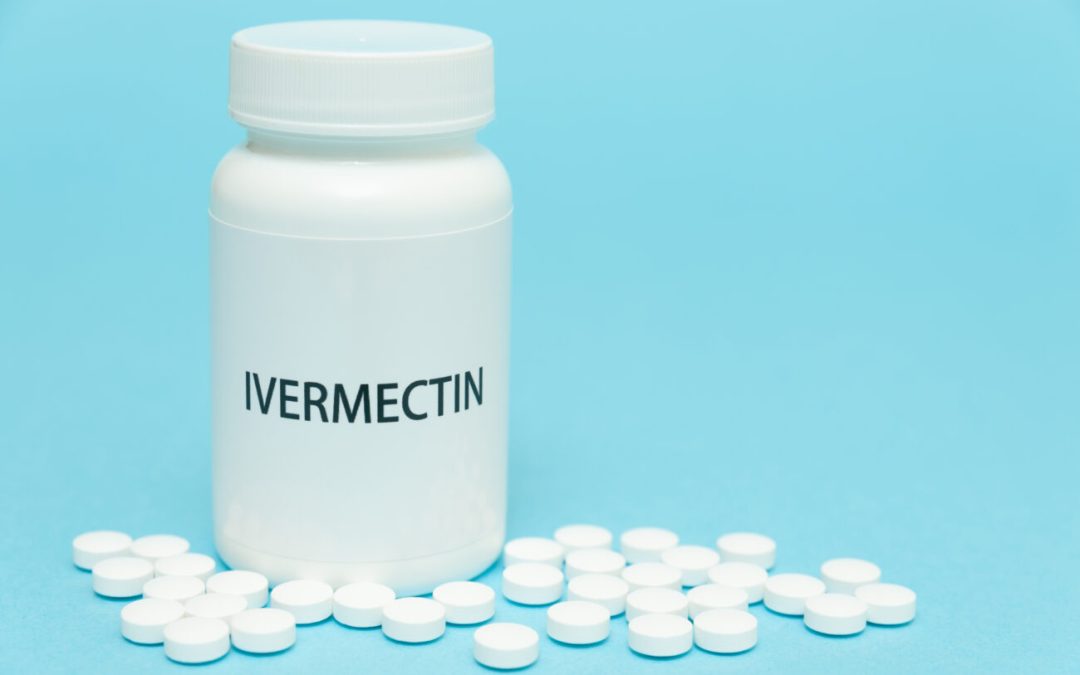
 www.natureofhealing.org
www.natureofhealing.org